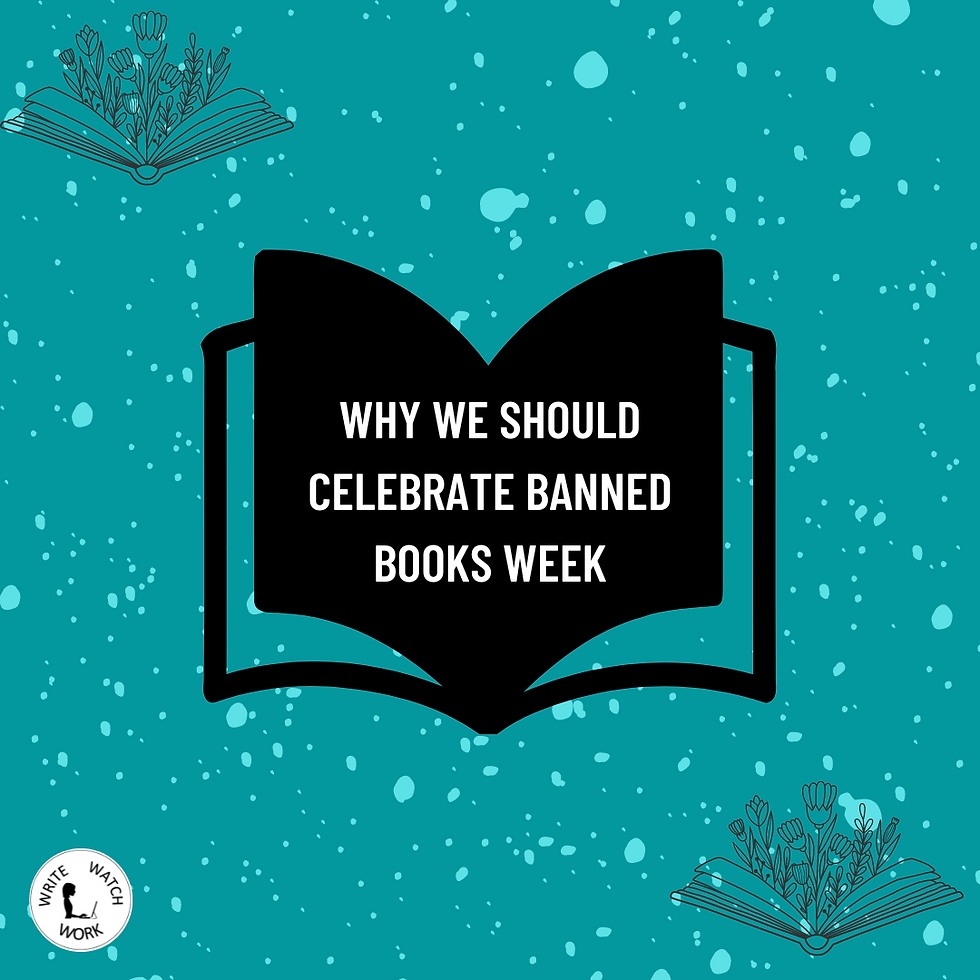National Storytelling Week: Books on the craft of writing
- abbybathurst

- Feb 5
- 5 min read
This week is National Storytelling Week, so I thought I'd share some of my favourite books on the craft of writing and storytelling.

From February 1st to February 9th in the UK, it is National Storytelling Week. It is an annual event, run by the National Literacy Trust, to celebrate all things storytelling.
The idea behind National Storytelling Week is for people to celebrate and share their love for stories but also the power that stories have. Stories aren't just for escapism; they help transform and shape people, cultures and societies.
For 2025, the theme of National Storytelling Week is 'Reimagine your world'. What this means is that there is inspiration everywhere.
As a writer and Creative Writing student, I can attest to that. In every part of our lives, there is inspiration for a story. We might walk past an abandoned building; we might overhear a conversation in a café; we might encounter something unexpected.
Whatever it may be, there is a story.
But, there are some techniques, conventions, and rules to writing.
So, having studied the craft of writing, whether it be prose or script, I thought I'd share some book recommendations from renowned writers, all on the way to excel at storytelling.
Books on the craft of writing
On Writing: A Memoir of the Craft by Stephen King

Stephen King is a prolific writer with numerous best-selling novels to his name. He is known for his spooky horror novels, some of which I have read, but when it comes to writing advice, his name is often one that pops up.
In particular, his book On Writing: A Memoir of the Craft is one of the most useful writing guides for aspiring authors, and even experienced writers. The book is non-fiction and it is "part memoir, part masterclass".
King delves into his life growing up, sharing tales from his childhood and the start of his career. He shares advice and gives readers practical tips to help hone and develop their craft.
And just like his creepy novels, On Writing draws you in and makes you want to keep reading.
Get Started in Writing Young Adult Fiction by Juliet Mushens

I'm currently studying writing for young adults and I'm working on a YA novel, and there has been nothing more helpful than this book by Juliet Mushens.
Get Started in Writing Young Adult Fiction is not only a book with advice; it has focus points, key quotes from authors, workshops and writing exercises to help you put what you've just learnt into practice.
It covers all key areas of storytelling from getting started to characters to breaking writing rules. There is even a section on finding an agent and the different types of publishing.
If you're planning on writing for a young adult audience, I would highly recommend getting this book to help you craft your stories.
Bird by Bird: Instructions on Writing and Life by Anne Lamott

Anne Lamott has published a writing guide that differs from others. Bird by Bird is a book full of anecdotes, jokes, and shared experiences, told in a down-to-earth manner.
It teaches us about the fundamentals of writing and whether you're an aspiring writer, or an experienced one, there is something to learn from Lamott.
But what I really loved about Bird by Bird is that the main message is, commitment. To be a writer, you have to be committed to writing.
With five different parts – Writing, The Writing Frame of Mind, Help Along The Way, Publication—And Other Reasons to Write and The Last Class – you'll be sure to find several useful lessons from Lamott.
Write Right! by Jan Venolia

Write Right! isn't actually a guide on how to tell stories. Instead, it is a guide on how to ensure you format your story correctly.
I have the fourth edition of Write Right! and on the cover, it describes the book as, "A Desktop Digest of Punctuation, Grammar, and Style."
So, if you have a story idea in mind, and you have strong writing skills, but you still aren't too sure what punctuation needs to go where and whether or not all of your grammar is correct, then this guide will be very useful for you.
Writers' and Artists' Guide to Writing for Children and YA by Linda Strachan

Similarly to Mushens' book above, the Writers' and Artists' Guide to Writing for Children and YA is aimed at writers who are targeting a younger audience. It is a fairly thick guide and contains 22 different sections.
It goes into detail about the essential storytelling tools, such as characters, dialogue, and settings, but it has advice on more technical aspects. For instance, there are chapters on the different age ranges – Writing a picture book; Writing for younger readers (5-7) etc. – and on writing non-fiction or series.
Plus, there is a chapter on Wellbeing for writers, which details things such as writers' groups, how to handle rejection and writer's block.
Screenplay: The Foundations of Screenwriting by Syd Field

If you study scriptwriting or are in the world of scripts and cinema, then it's likely that you would have heard about Syd Field.
But if not, then Syd Field is a renowned author, who has published several books on the craft of storytelling for the big screen. He has even been nicknamed "The guru of all screenwriters".
His book, Screenplay: The Foundations of Screenwriting is as it says on the cover: A step-by-step guide from concept to finished script. It teaches you what exactly a screenplay is, the essential aspects of a script, and what to do after it's written.
I've used Field's book throughout each scriptwriting unit I've studied for my degree, and I will continue to use it in the future. It is definitely a must-have if you fancy writing a script.
Now Write! Screenwriting, Edited by Sherry Ellis and Laurie Lamson

Now Write! Screenwriting is not only a book full of advice for screenwriters. It is a practical guide that will allow you to put your skills to the test.
With over 300 pages of useful advice, Now Write! Screenwriting includes screenwriting exercises from the writers of some best-selling films and TV series, including, Terminator 2, Groundhog Day, Reversal of Fortune and Lost.
Each chapter in the book is in-depth and along with Syd Field's book, this is a go-to writing guide for me when I'm working on my scripts.
Save the Cat! by Blake Snyder / Jessica Brody

Blake Snyder came up with an idea of how to format a screenplay and he named it the Save the Cat! method. Soon after, Jessica Brody adapted the Save the Cat! method but for novel writing.
I don't have Snyder's version, but I did complete a course by Brody and I do use the Save the Cat! method to plan out my novel's plot.
Whether you're an author or a scriptwriter, invest in either one or both of these books because the way they break the method down is easily digestible.
So, those are eight recommendations of books on the craft of writing for National Storytelling Week.
If you want to start crafting stories, whatever the genre may be, I hope these books can help develop your skills even further.
Until next time...








I’ve heard you mention the Save the Cat! method before but didn’t know it was an actual book! 😃
All of these books sound extremely useful, so great work on promoting them! I know you work with them all too, and your storytelling and imagination shine through in your writing. Don't ever stop being creative! 😀
Great advice for budding writers and screen writers 👍